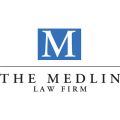Why Sobriety Checkpoints May Not Be Legal in Texas

Drivers dislike sobriety checkpoints but they are not legal in all states. It’s debatable whether drunk driving checkpoints and roadblocks are legal at all. At present, 38 U.S. states permit them while 12 do not.
In Texas, a DWI arrest based on evidence obtained from sobriety checkpoints should not be legal.
The key issue is whether or not generally stopping drivers violates a U.S. citizen’s Fourth Amendment rights against unreasonable search and seizure.
Sobriety checkpoints are not legal in Texas under a 1994 case in which the Court of Criminal Appeals ruled that for any roadblock to be reasonable. The police must be authorized by a statewide policy governing checkpoints.
Texas has not authorized police officers to set up roadblocks, nor allowed their enforcement techniques. For this reason, sobriety checkpoints or other roadblocks are unconstitutional in Texas.
The ruling has not stopped police in Texas from setting up “No Refusal” checkpoints during holidays or festivals.
During these times, police set up checkpoints and have a team of registered nurses on call at the jails after judges determine that there is probable cause to believe drivers were impaired.
These checkpoints are meant to be designed to prevent accidents that are caused by intoxicated motorists. Some attorneys and civil rights organizations have criticized “No Refusal” checkpoints claiming they infringe the rights of drivers. In Texas, however, these checkpoints are still being used regularly.
The term “no refusal” is misleading. A driver has the right to refuse a test and the police officer cannot force it on the driver. There is an exception under the Texas Transportation Code. If a driver is arrested for Driving While Intoxicated and the police officer has a reasonable belief that the drunk driver caused an accident that resulted in death or serious injury, the test may be mandatory even if the driver refuses.
Even a refusal in circumstances when a driver has not caused a wreck doesn’t mean he or she is allowed to continue. Texas has an implied consent law that means in exchange for the privilege of driving in Texas, drivers who refuse to be tested can automatically have their licenses suspended.
At the Medlin Law Firm, our experienced DWI defense attorneys can advise you on your case.
The Medlin Law Firm
1300 S University Dr #318
Fort Worth, TX 76107
(682) 204-4066
https://www.MedlinFirm.com/locations/fort-worth/
Other articles and publications:
Articles and publications of other companies:
- +1 (682) 204-4066
- 1300 S University Dr #318, Fort Worth, TX, 76107
- www.medlinfirm.com/locations/fort-worth/



